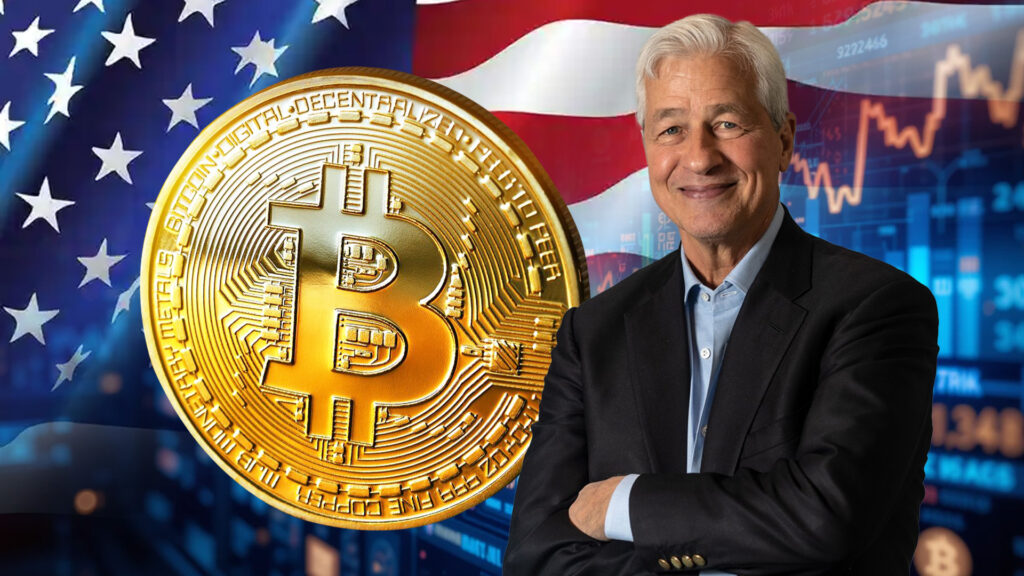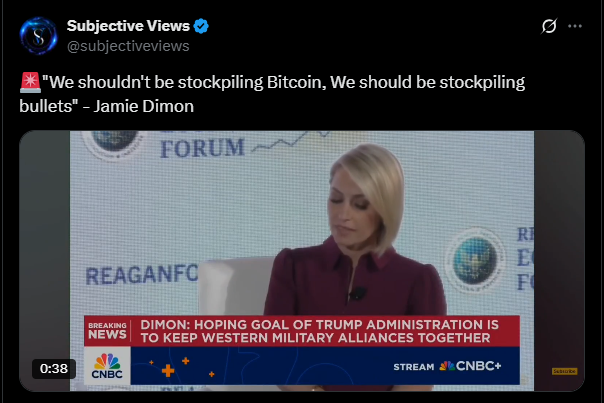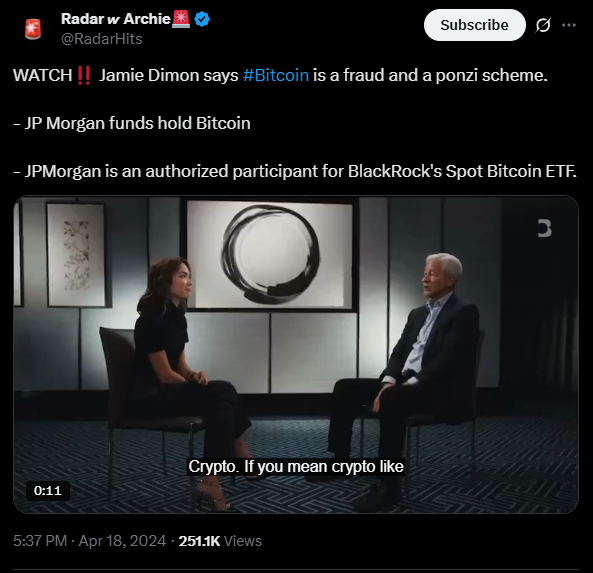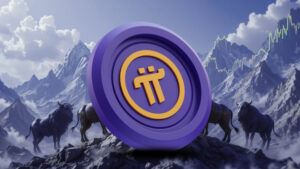Bitcoin Should Not Be Part Of US Crypto Stockpile, JP Morgan CEO Says

- JPMorgan Chase CEO Jamie Dimon strongly opposes the U.S. government stockpiling Bitcoin.
- Dimon’s comments directly challenge President Donald Trump’s executive order to create a national Bitcoin reserve.
- Despite his personal skepticism, Dimon’s bank, JPMorgan, now allows clients to buy Bitcoin due to increasing client demand.
JPMorgan Chase CEO Jamie Dimon is once again standing strong against Bitcoin.
This time, he is doing this in the context of U.S. national security. He spoke at the Reagan National Economic Forum in Simi Valley, California where he warned against the federal government’s growing interest in creating a national Bitcoin reserve.
According to Dimon, this plan distracts from more urgent defense priorities. Dimon didn’t mince words: “We shouldn’t be stockpiling bitcoin. We should be stockpiling guns, bullets, tanks, planes, drones—you know, rare earths.”
Here are more details of Dimon’s stance and what it means for crypto.
National Security Over Digital Currency
Dimon’s remarks came as a direct response to an executive order issued by US President Donald Trump in March. The order called for the creation of a Bitcoin reserve to serve as a “virtual Fort Knox for digital gold.”

The idea behind the policy is to treat Bitcoin like gold or oil, and stockpile it as a strategic asset that could strengthen the U.S. economy and shield it from financial instability. However, Dimon believes the plan is misguided.
He cited issues with the country’s depleted missile stockpiles and weaknesses in U.S. military readiness. He argued that the government’s priorities are out of sync with the country’s actual needs.
In the event of a major conflict, like one in the South China Sea, reports show that the U.S. could run out of missiles in a week. To Dimon, that possibility should set off alarm bells. “We know what we need to do,” he pointed out. “This is not a mystery.”
A Long History of Bitcoin Skepticism
Dimon has never been a fan of Bitcoin. He previously called it a “fraud,” a “pet rock” and compared it to the infamous tulip mania bubble of the 1600s.

He even said he’d fire employees caught trading it. Yet, in recent years, his tone has changed, at least from a business standpoint.
At JPMorgan’s annual investor day in May, Dimon revealed that the bank would allow clients to buy Bitcoin, even though it won’t offer custody services or hold the asset itself.
“We are going to allow you to buy it,” he said, comparing the move to defending someone’s right to smoke, even if he doesn’t endorse the habit personally.
This change in stance shows increasing demand from clients, even as Dimon continues to voice his skepticism over the asset’s role in national and economic policy.
Wall Street is Still Warming Up to Bitcoin
Despite Dimon’s misgivings, major banks are moving into the crypto space. Morgan Stanley is planning to launch Bitcoin and Ethereum trading on its E-Trade platform by 2026.
Goldman Sachs, too, is expanding its crypto services and offering clients exposure to Bitcoin through ETFs and other investment vehicles.
This trend indicates that while top executives like Dimon remain wary of Bitcoin’s strategic value, Wall Street sees clear demand and profit, especially when it comes to giving clients access to digital assets.
In fact, JPMorgan’s decision to permit Bitcoin purchases (even without offering custody) shows that the shift is undeniable at this point. Therefore, the real question is not whether the U.S. should abandon its defense stockpiles for crypto.
Instead, it is about whether Bitcoin can exist as part of a national strategy. Supporters of the Bitcoin reserve idea aren’t saying that it should replace weapons or rare earth minerals.
Additionally, they argue it could act as a complementary asset, serve as a hedge against central bank missteps, and provide a fallback in the case of sovereign debt crises.




